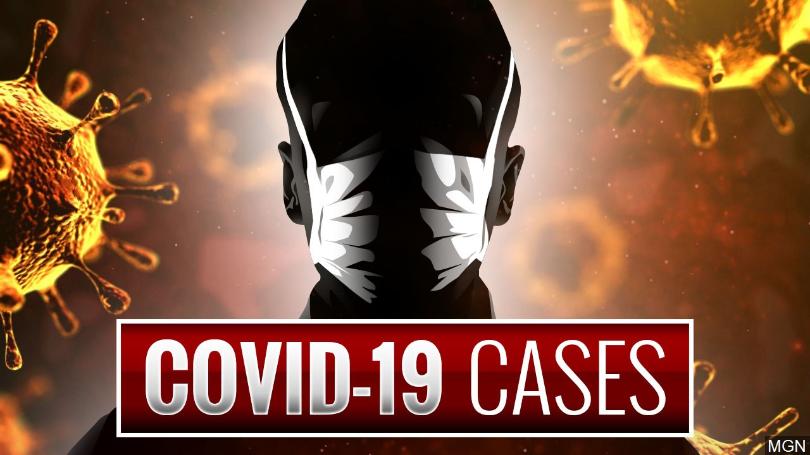COVID cases continue to rise in four eastern Upper Peninsula counties.
Mackinac County added the most cases throughout April with 131 cases, followed by Luce County with 100 cases. Alger and Schoolcraft Counties each increased by a total of 47 cases, according to the Luce, Mackinac, Alger, Schoolcraft District Health Department.
The largest case increase over the last month was reported in people ages 19 to 64, with that age group comprising around 55% of cases across all four counties.
This group was followed by the 3 to 18 age range at around 32%, 65 and up at 9.80%, 0-2 at just over 2% and unknown at around 1%.
In March, the LMAS District Health Department’s four-county jurisdiction added 59 confirmed cases of COVID-19 and 73 probable cases for a total of 132. However, that number increased from April 4 to May 5, adding 325 cases of COVID-19 in the last month alone, 179 of which were confirmed and 146 which are probable.
Officials with the health department pointed to an early loosening of restrictions as the cause of the increase, despite the vaccination campaign.
“As COVID vaccinations received Emergency Use Authorization and became available in December 2020, there was a sense of relief and hope, but what followed has been a trend to abandon all precautions before we reach the needed levels of immunity to be able to safely move forward,” health department officials said in a news release. “Some restrictions are being eased, especially for those who are fully vaccinated, but with variants on the rise in the region, individuals not wearing a mask, and the growing number of large indoor and outdoor gatherings, more cases are the result.
“The more people who are infected with COVID, the greater chance of more variants developing, and greater the risk of one of those variants being resistant to the vaccines and the existing treatments for COVID disease.”
Health department officials said it has several COVID vaccination opportunities available across its four counties. Residents of Luce, Mackinac, Alger and Schoolcraft Counties who would like to sign up for a vaccine appointment can visit LMASDHD.org.
“The COVID vaccinations are effective at preventing COVID disease and reducing the spread of the virus,” health department officials said in the release. “Any serious risks from vaccinations are very rare. The risks from having COVID are much more likely, and much more serious, not just for people who are old or have other health conditions. All are at risk of complications or death from COVID disease.
“Whatever your vaccination status, we need you to help take care of yourself and each other by continuing to mask and social distance in public places or with people who do not live in your immediate household.”
Vaccine milestone tracker launched
The Michigan Department of Health and Human Services on Friday launched the Vacc to Normal Milestone Tracker to complement the Michigan COVID-19 Vaccine Dashboard. This tracker includes vaccinations of residents received in-state and out-of-state, allowing the state to provide more comprehensive data on vaccination milestones as they are reached.
The tracker uses vaccination counts from the Centers for Disease Control and Prevention COVID Data Tracker to provide information on the number of Michiganders ages 16 and older who have received their first dose, as the CDC has access to administration data from providers who are not currently reporting to the Michigan Care Improvement Registry, including federal entities, such as veteran’s hospitals and U.S. Department of Defense facilities, and out-of-state providers who administered vaccines to Michigan residents.
The Vacc to Normal Tracker also tracks the date when 55%, 60%, 65% and 70% of Michigan residents 16 years or older have received their first dose of vaccine and provides the date two weeks later when the next steps to normalcy will move forward. The Vacc to Normal plan will use four vaccination-based milestones:
55% of Michiganders — 4,453,304 residents — plus two weeks
≤ Allows in-person work for all sectors of business.
60% of Michiganders — 4,858,150 residents — plus two weeks
≤ Increases indoor capacity at sports stadiums to 25%.
≤ Increases indoor capacity at conference centers/banquet halls/funeral homes to 25%.
≤ Increases capacity at exercise facilities and gyms to 50%.
≤ Lifts the curfew on restaurants and bars.
65% of Michiganders — 5,262,996 residents — plus two weeks
≤ Lifts all indoor capacity limits, requiring only social distancing between parties.
≤ Further relaxes limits on residential social gatherings.
70% of Michiganders — 5,667,842 residents– plus two weeks
≤ Lifts the Gatherings and Face Masks Order such that MDHHS will no longer employ broad mitigation measures unless unanticipated circumstances arise, such as the spread of vaccine-resistant variants.
To date, 4,393,499 residents age 16 and older have received their first dose of he safe and effective COVID-19 vaccine, 54% of the state’s residents. The Michigan COVID-19 Vaccine Dashboard provides detailed information on doses administered and coverage, including detail on county, age group, race/ethnicity and provider type. The Michigan COVID-19 Vaccine Dashboard provides detailed data from the Michigan Care Improvement Registry collected from Michigan enrolled providers.
Doses administered to Michigan residents by most health care providers in other states are not sent to MCIR at this time. The CDC is developing an interstate data transfer system for sharing data on COVID-19 vaccine doses between states for their residents. Michigan has signed a Data Sharing Agreement with CDC and is working with other states to put technological connections in place for sharing information until the CDC data transfer system is developed. Michigan has had data sharing agreements with Wisconsin and North Dakota for all immunizations since before the COVID-19 vaccination campaign began.
Michiganders who have been vaccinated in another state are urged to bring their vaccination card to their health care provider at their next appointment or to their local health department to have their immunization information updated in MCIR. Although MDHHS is now receiving CDC counts on first doses administered to Michigan residents, this data is aggregate and does not include information about county of residence, age, sex or other demographic information.
- Laker Men’s Basketball Handle Kuyper 88-55 - December 23, 2024
- MYWAY Sault Bridge Brawl & NEMWA Regional Results - February 22, 2024
- Crawford County Prosecutor clears State Trooper in the fatal shooting of man earlier this month - February 23, 2023




